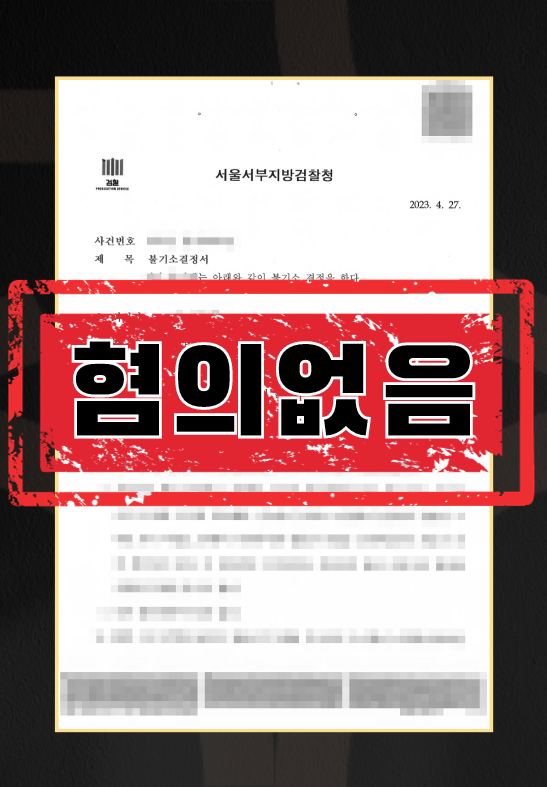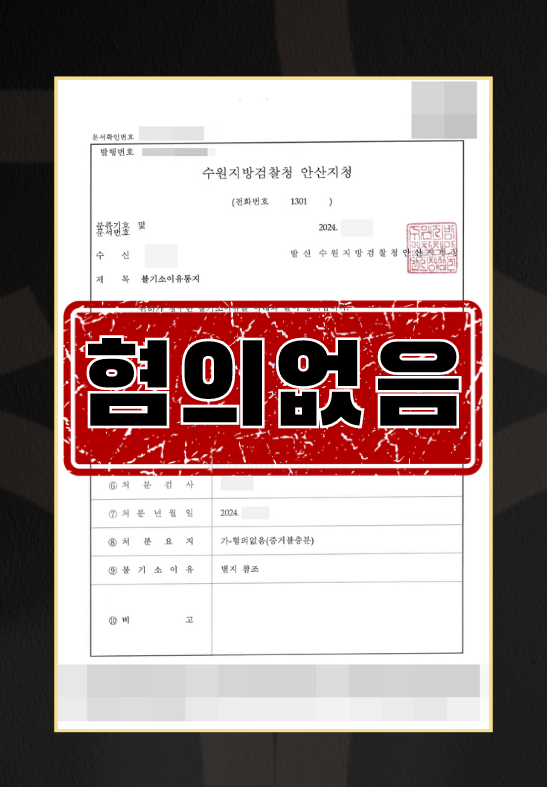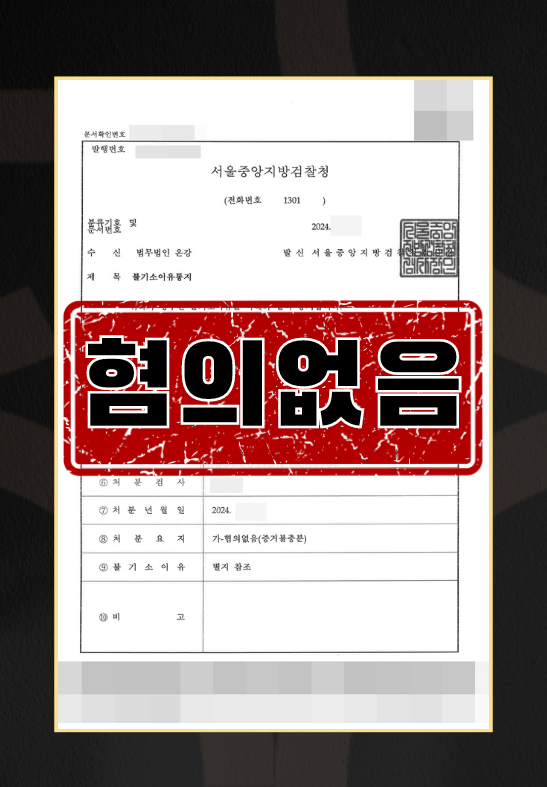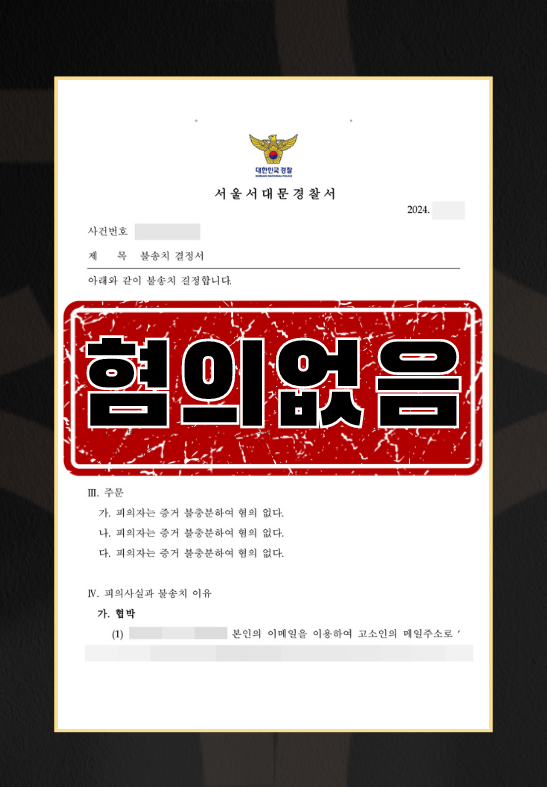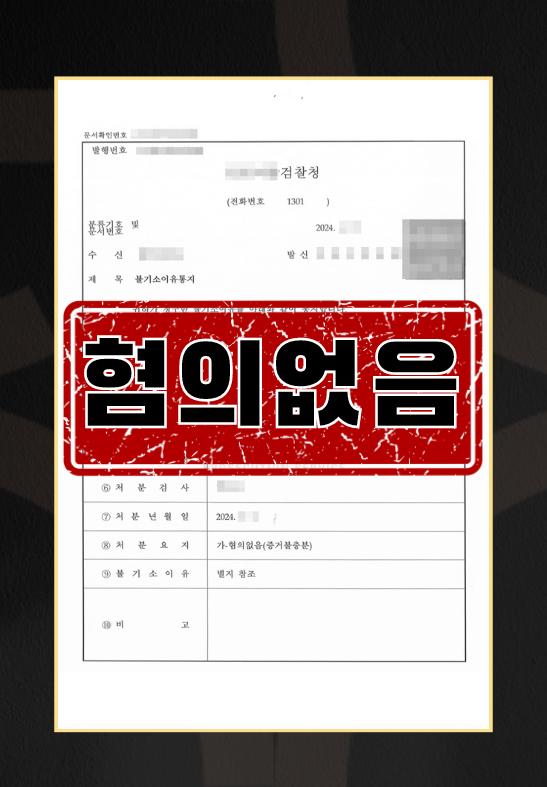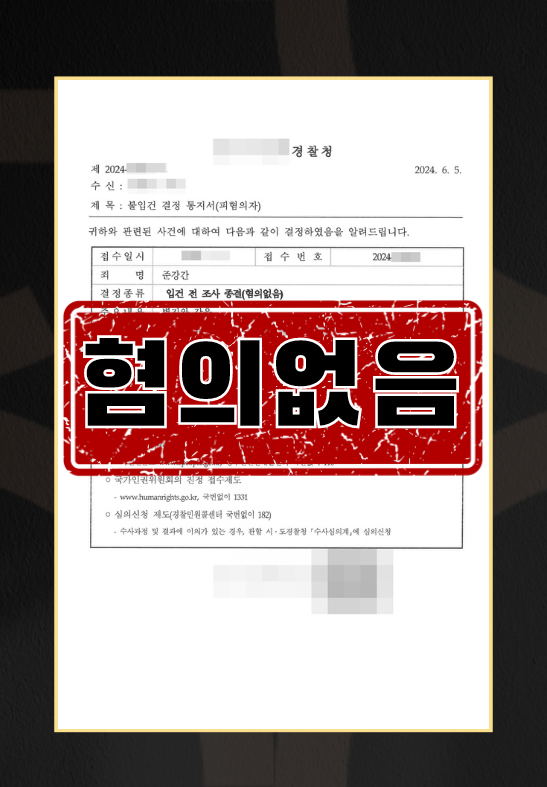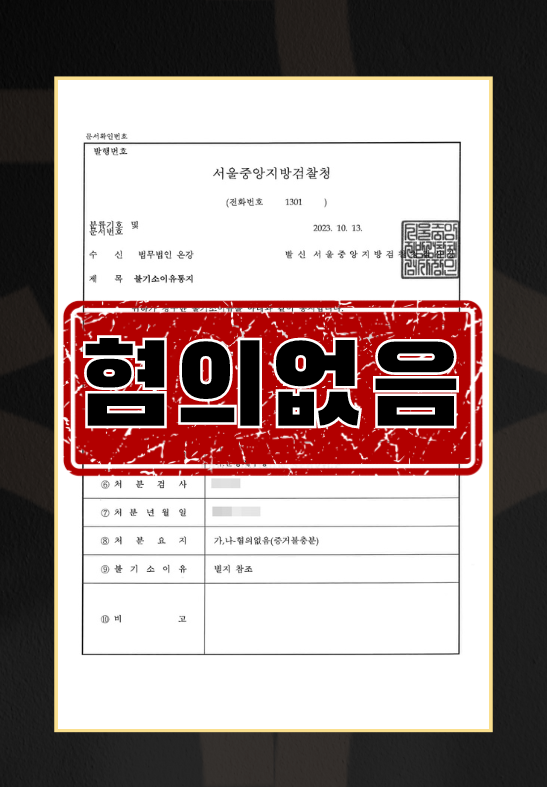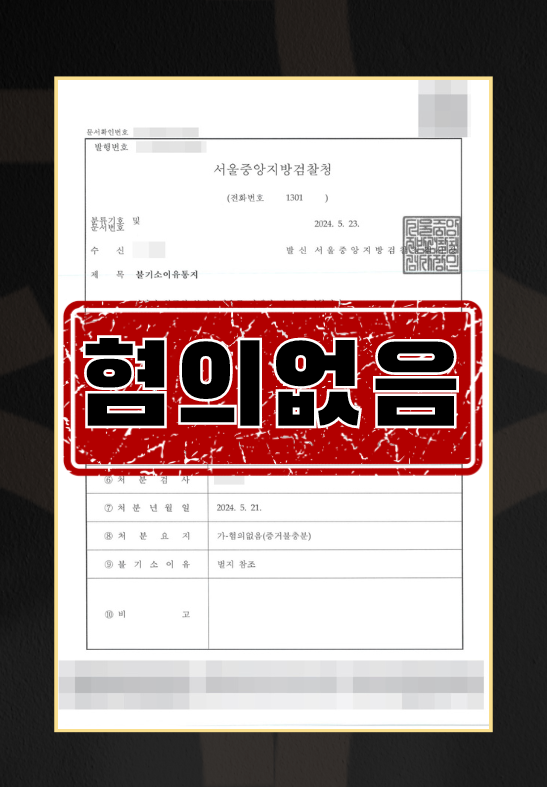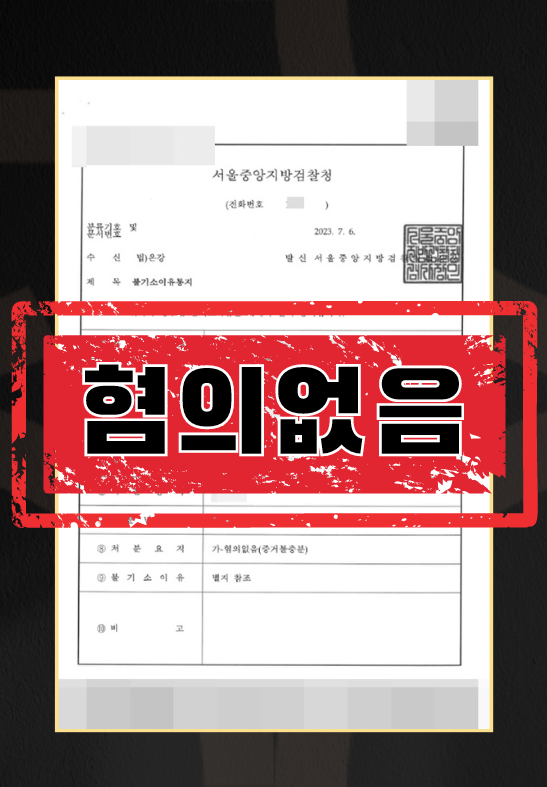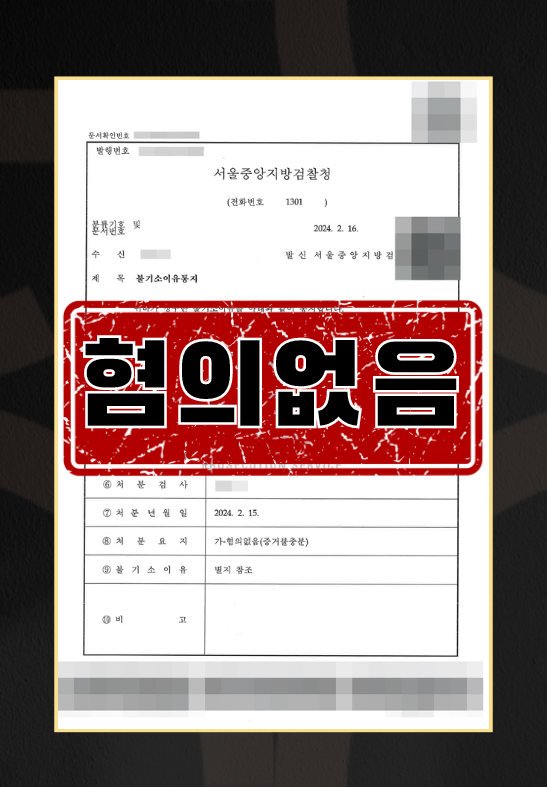
Allegations of forcing recruits to write non-mandatory error notes during military service
The client, who was serving in the military, along with his co-defendants, his predecessors and successors, forced the victim, who had just completed the training center and had just moved to a new place, to do unnecessary work, such as filling out a mistake note every time the victim made a mistake, and then have it inspected. ■ Case Issues The victim wrote a mistake note by herself and never instructed her to do so, and when she brought it to the client for inspection after writing it herself, the client only confirmed it at the victim's request and instructed her to undergo the inspection, but did not assault or intimidate her as a means of doing so, and it was necessary to argue that the crime of coercion could not be committed because there was an implied notice of harm that could restrict the victim's freedom of decision-making beyond what is permissible under social norms or frighten her to the point of interfering with her freedom of decision-making. ■ Issue Resolution Law Firm Ongang

